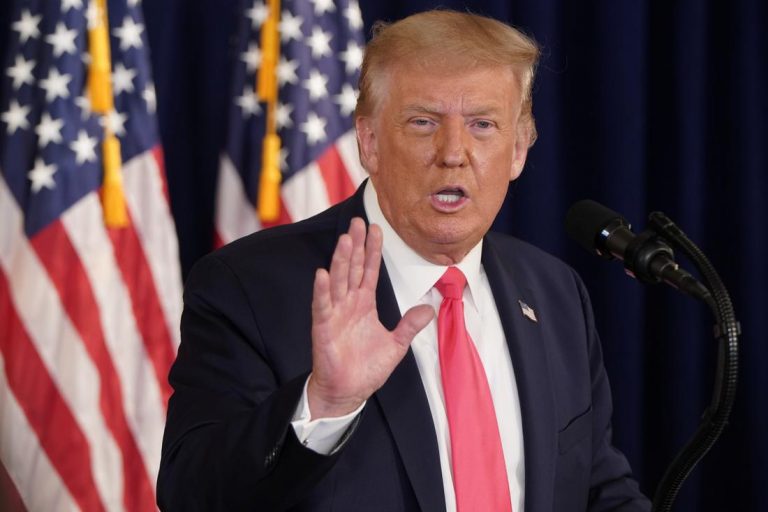
BEDMINSTER, N.J. (Reuters) – President Donald Trump signed executive orders on Saturday partly restoring enhanced unemployment payments to the tens of millions of Americans who lost jobs in the coronavirus pandemic, as the United States marked a grim milestone of 5 million cases.
Negotiations broke down this week between the White House and top Democrats in Congress over how best to help Americans cope with the heavy human and economic toll of the crisis, which has killed more than 160,000 people across the country.
Trump said the orders would provide an extra $400 per week in unemployment payments, less than the $600 per week passed earlier in the crisis. Some of the measures were likely to face legal challenges, as the U.S. Constitution gives Congress authority over federal spending.
“This is the money they need, this is the money they want, this gives them an incentive to go back to work,” the Republican president said of the lower payments. He said 25% of it would be paid by states, whose budgets have been hard hit by the crisis.
Republicans have argued that higher payments were a disincentive for unemployed Americans to try to return to work, though economists, including Federal Reserve officials, disputed that assertion.
Trump’s move to take relief measures out of the hands of Congress drew immediate criticism from some Democrats.
“Donald Trump is trying to distract from his failure to extend the $600 federal boost for 30 million unemployed workers by issuing illegal executive orders,” said Senator Ron Wyden, the top Democrat on the Senate Finance Committee. “This scheme is a classic Donald Trump con: playacting at leadership while robbing people of the support they desperately need.”
The Democratic-majority House of Representatives passed a coronavirus support package in May which the Republican-led Senate ignored.
Democratic presidential candidate Joe Biden called the orders a “series of half-baked measures” and accused Trump of putting Social Security “at grave risk” by delaying the collection of payroll taxes that pay for the program.
Trump also said he was suspending collection of payroll taxes, which pay for Social Security and other federal programs, an idea that he has repeatedly raised but has been rejected by both parties in Congress. He said the suspension would apply to people making less than $100,000 per year.






